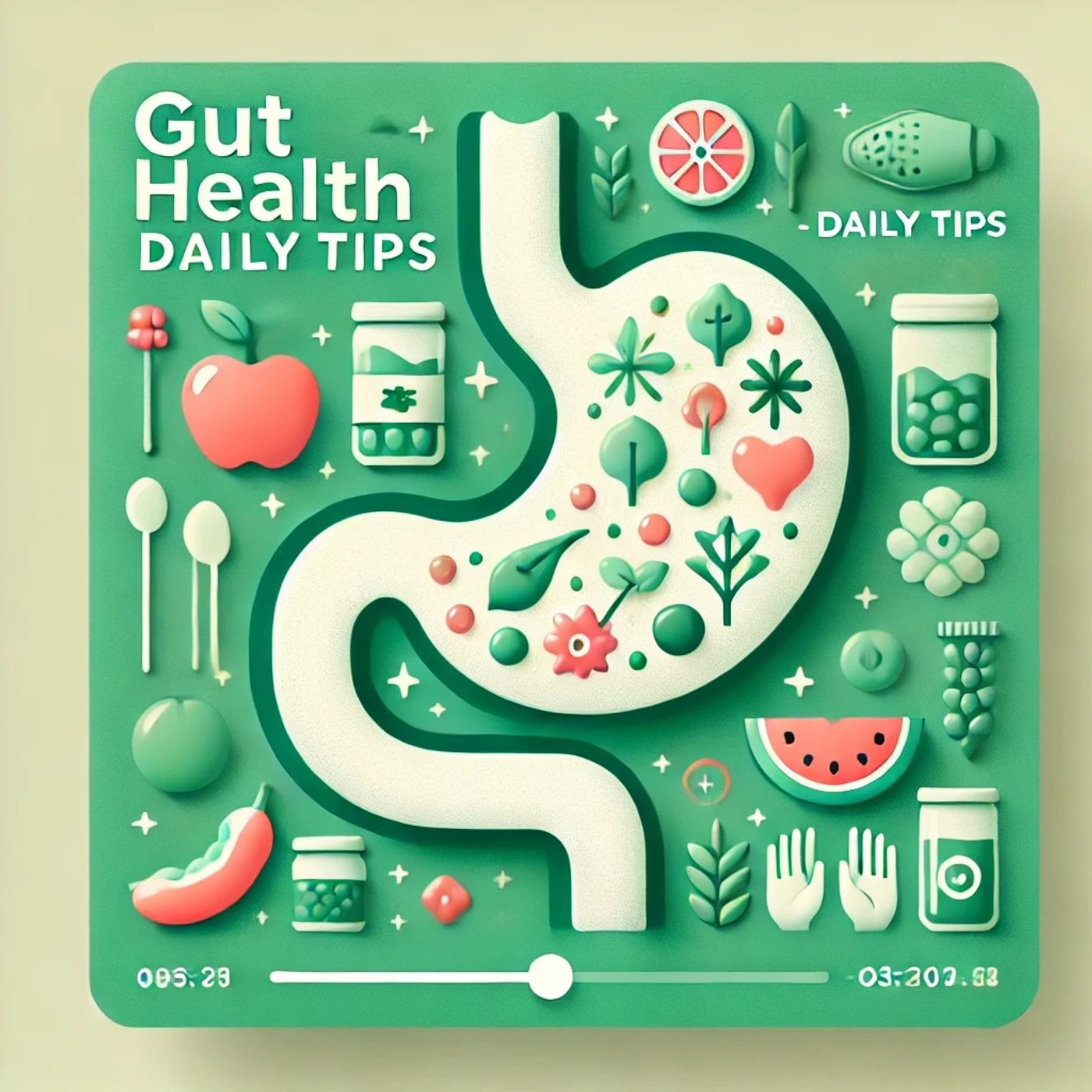"10 Proven Tips to Boost Your Gut Health for Enhanced Well-Being"
Update: 2025-09-28
Description
Gut health is increasingly recognized as a critical component of overall well-being. The gut, or gastrointestinal tract, is home to trillions of microbes that play essential roles in digestion, immunity, and even mental health. A balanced gut microbiome is vital for efficient nutrient absorption, protection against pathogens, and regulating the body's inflammatory responses. Here are several ways to improve your gut health:
1. **Diversify Your Diet**: A varied diet supports a diverse microbiome. Different species of gut bacteria prefer different foods. Aim to include a wide range of fruits, vegetables, whole grains, and legumes. Foods rich in dietary fiber, such as broccoli, lentils, beans, and whole grains, are particularly beneficial as they act as prebiotics, feeding the good bacteria in your gut.
2. **Incorporate Fermented Foods**: Fermented foods are rich in beneficial bacteria known as probiotics. Including foods like yogurt, kefir, sauerkraut, kimchi, and kombucha can introduce beneficial microbes into your gut, enhancing the microbiome's balance and function.
3. **Reduce Sugar and Artificial Sweeteners**: High sugar intake and artificial sweeteners can negatively affect gut diversity. Studies have shown that artificial sweeteners can alter gut microbiota, leading to metabolic disturbances. Reducing sugar and sweeteners can promote a healthier gut environment.
4. **Stay Hydrated**: Adequate hydration is essential for the mucosal lining of the intestines and the balance of beneficial bacteria. Water helps to flush out toxins and enhance digestion, supporting overall gut health.
5. **Manage Stress**: Chronic stress can alter gut microbiota, leading to dysbiosis and gut inflammation. Practices like yoga, meditation, and deep breathing exercises can help manage stress levels, thereby promoting a healthier gut.
6. **Get Enough Sleep**: Poor sleep can hurt gut health, disrupting the balance of bacteria. Aim for seven to nine hours of quality sleep per night to support the healing and maintenance of the gut microbiome.
7. **Exercise Regularly**: Regular physical activity promotes the growth of beneficial bacteria in the gut. Exercise improves circulation, reduces stress, and enhances the gut barrier function, helping to prevent inflammation and disease.
8. **Mind Your Antibiotic Use**: While antibiotics are sometimes necessary, they can disrupt the balance of your gut bacteria by killing beneficial microbes. Only use antibiotics when prescribed by a healthcare professional and consider taking a probiotic during and after antibiotic treatment to help restore the gut flora.
9. **Consume Polyphenol-Rich Foods**: Foods high in polyphenols, such as berries, dark chocolate, green tea, and red wine, can promote the growth of beneficial gut bacteria. Polyphenols have antioxidant properties and contribute to a healthier microbiome.
10. **Avoid Smoking and Limit Alcohol**: Smoking and excessive alcohol consumption can cause dysbiosis and inflammatory gut conditions. Quitting smoking and moderating alcohol intake can significantly benefit your gut health.
By making these adjustments to your daily routine, you can create an environment where your gut microbiome thrives, contributing to improved digestion, enhanced immune function, and a greater sense of overall well-being. Remember, even small changes can make a big difference over time.
For more http://www.quietplease.ai
Get the best deals https://amzn.to/3ODvOta
This content was created in partnership and with the help of Artificial Intelligence AI
1. **Diversify Your Diet**: A varied diet supports a diverse microbiome. Different species of gut bacteria prefer different foods. Aim to include a wide range of fruits, vegetables, whole grains, and legumes. Foods rich in dietary fiber, such as broccoli, lentils, beans, and whole grains, are particularly beneficial as they act as prebiotics, feeding the good bacteria in your gut.
2. **Incorporate Fermented Foods**: Fermented foods are rich in beneficial bacteria known as probiotics. Including foods like yogurt, kefir, sauerkraut, kimchi, and kombucha can introduce beneficial microbes into your gut, enhancing the microbiome's balance and function.
3. **Reduce Sugar and Artificial Sweeteners**: High sugar intake and artificial sweeteners can negatively affect gut diversity. Studies have shown that artificial sweeteners can alter gut microbiota, leading to metabolic disturbances. Reducing sugar and sweeteners can promote a healthier gut environment.
4. **Stay Hydrated**: Adequate hydration is essential for the mucosal lining of the intestines and the balance of beneficial bacteria. Water helps to flush out toxins and enhance digestion, supporting overall gut health.
5. **Manage Stress**: Chronic stress can alter gut microbiota, leading to dysbiosis and gut inflammation. Practices like yoga, meditation, and deep breathing exercises can help manage stress levels, thereby promoting a healthier gut.
6. **Get Enough Sleep**: Poor sleep can hurt gut health, disrupting the balance of bacteria. Aim for seven to nine hours of quality sleep per night to support the healing and maintenance of the gut microbiome.
7. **Exercise Regularly**: Regular physical activity promotes the growth of beneficial bacteria in the gut. Exercise improves circulation, reduces stress, and enhances the gut barrier function, helping to prevent inflammation and disease.
8. **Mind Your Antibiotic Use**: While antibiotics are sometimes necessary, they can disrupt the balance of your gut bacteria by killing beneficial microbes. Only use antibiotics when prescribed by a healthcare professional and consider taking a probiotic during and after antibiotic treatment to help restore the gut flora.
9. **Consume Polyphenol-Rich Foods**: Foods high in polyphenols, such as berries, dark chocolate, green tea, and red wine, can promote the growth of beneficial gut bacteria. Polyphenols have antioxidant properties and contribute to a healthier microbiome.
10. **Avoid Smoking and Limit Alcohol**: Smoking and excessive alcohol consumption can cause dysbiosis and inflammatory gut conditions. Quitting smoking and moderating alcohol intake can significantly benefit your gut health.
By making these adjustments to your daily routine, you can create an environment where your gut microbiome thrives, contributing to improved digestion, enhanced immune function, and a greater sense of overall well-being. Remember, even small changes can make a big difference over time.
For more http://www.quietplease.ai
Get the best deals https://amzn.to/3ODvOta
This content was created in partnership and with the help of Artificial Intelligence AI
Comments
In Channel





